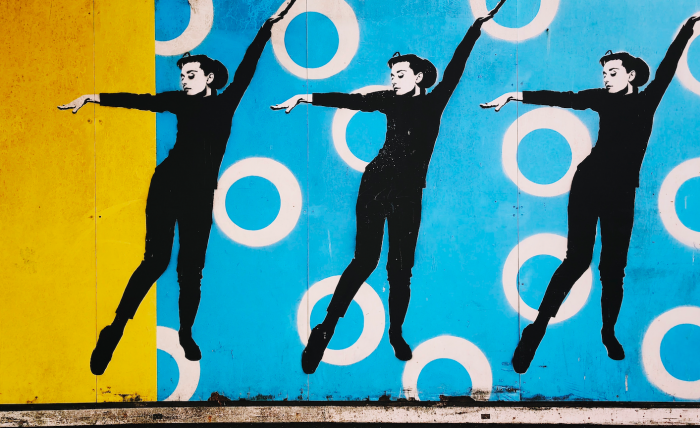“Since the world has existed, there has been injustice. But it is one world, the more so as it becomes smaller, more accessible. There is just no question that there is more obligation that those who have should give to those who have nothing.” ~ Audrey Hepburn
Audrey Hepburn was my hero growing up.
She was an actress, and an activist, and an inspiration. Her legacy is not just movies and fame. She was more than just a character she played.
She did not create “Audrey.” In her words, she just did her thing. She did not consider herself an icon. She was a force who brought her own beauty and uniqueness to the screen. She helped people all her life, starting as a child.
Born in Brussels, her childhood was spent in Europe. During World War II, she experienced the effects of Nazi Germany, being reduced to near starvation. The malnutrition affected her metabolism for the rest of her life, leading her to become “fake thin” as she would someday tell her sons. She had compassion for the children of war-torn countries for the rest of her life. As a result, she prioritized her work with Unicef above acting on the big screen.
The great victory that Audrey Hepburn had was that she was not reduced by cinema, letting it become anything other than art. As a woman, she was a heroine in that her work was an act of expression. She never had to take control of her image, because she had natural dignity and class—which came from her character.
When she was a child, not only did she witness Nazism, but her father abandoned her as well. She wanted to be a ballerina but had her lessons canceled because of the war and later had failed marriages and a miscarriage. Despite all this, she was an activist at an early age, beginning with riding her bike and delivering anti-Nazi information—risking her life.
She taught dance lessons for those fighting the Nazis. She was never seeking fame. It happened to her, and she said that she accepted life unconditionally, never seeking the rewards of her actions.
Becoming a mother and Unicef ambassador were her two strongest roles in her life. She did not use her star power. Her acting character never reduced her intelligence. Rather, she lived as a uniquely compassionate human being, who desired to fight for children because she knew the effects of war from her own experiences.
For her, empathy was everything—she had no ego.
She had not sought everything that had happened to her, but she worked hard in responding to it all. She put others before herself. She never claimed she was beautiful, but often laughed about her face.
One of my favorite lines in her movies is from “Funny Face” when she was seeking to speak with a philosopher she admired—she realized, “You’re not talking like a philosopher! You’re talking like a man.”
To me, she was also a feminist icon. Even in her work, the lines came together right where you knew you could bite into some wisdom or authenticity, called on from her own experiences. That is what made her acting so unique.
She lived well and is the most important aspect to remembering her. She never forgot what that meant. She followed her own path, calling herself an introvert, “I don’t want to be alone—I want to be left alone.”
She had a childlike wonder and enjoyed being in the moment. She made us aware that she was fully present and human.
Her dance background taught her self-discipline, poise, and grace, and it often looked as if she glided on stage. She did not adhere to Hollywood standards of beauty; she brought a European elegance, inspired by the tradition of dance as an art form.
In terms of fashion, she had a sense of making what worked for her be a lasting ambition, rather than letting others change her. She befriended Givenchy, who dressed her for many roles and events. She created her own look: the little black dress, pearls, big sunglasses, ballerina flats, and black leggings. She created an affordable look, showcasing the beauty of simplicity. She adopted this as a personal style from lack of funds and incorporated her simple, yet elegant, ballet style.
She never felt the pressure to keep making movies. If she had only made “Roman Holiday,” which sparked her career in acting, she would still be remembered. If she had only made “Breakfast at Tiffany’s,” which she brought to Holly Golightly, some sense of vulnerability and humanness, she would still be remembered.
It was because she never acted seeking its fruit. And therefore, when she was in movies, she was not acting.
She never called herself an actress, reflecting on her mother’s amazement at her going so far, despite having no talent. She is a rare actress, full of authenticity, who made everything into an interpretative dance of her life.
In one of her last films “Always,” she discussed the idea of Spiritus, or the divine breath, as she cut the hair of a man who had recently died. While they walked together, she told him that everyone gets Spiritus, disguised as their own voice inside their heads, or inspiration and that one day, they must give it back.
Her spirit is still here, and she left a legacy not just of greatness, but of goodness. She spent the rest of her days helping starving children in third-world countries because she knew war and hunger herself. She always gave back.
Her timelessness can outweigh the world’s focus on fame for simply being famous—reality stardom. She sets the bar high. And with that, she left the world wondering what made her so beautiful.
It’s because she was authentic.
~









Read 0 comments and reply